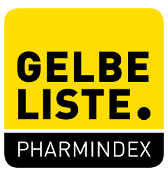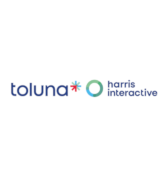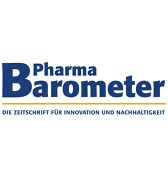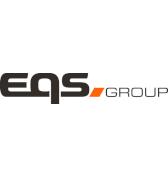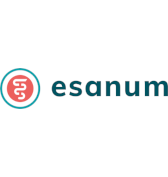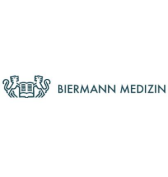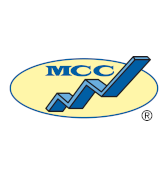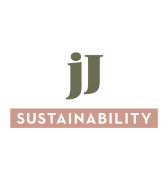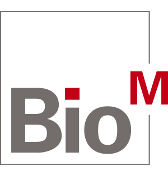DUBLIN–(BUSINESS WIRE)–The “Personalized Cancer Vaccine Market Opportunity & Clinical Trials Outlook 2025” report has been added to ResearchAndMarkets.com’s offering.
Personalized cancer vaccines are emerging as a transformative force in next generation cancer treatment methodology, with emergent commercial potential fueled by advancements in biotechnology and an increasing demand for targeted therapies. These vaccines represent a tailored approach to cancer treatment, utilizing a patient’s unique genetic makeup to craft vaccines that specifically target and eliminate cancer cells. The success of this approach is gaining traction, and the market for personalized cancer vaccines is expected to grow significantly by 2030. Companies like BioNTech, Moderna, and smaller players such as myNEO Therapeutics are at the forefront, using their expertise in mRNA technology, which was initially honed during the COVID-19 pandemic.
Report Highlights & Findings:
- Commercially Approved Personalized Cancer Vaccine: Provenge
- Provenge Patent, Price & Dosage Insight
- Global Clinical Research Trends By Region & Indication
- Insight On More Than 18 Personalized Cancer Vaccines In Clinical Trials
- Personalized Cancer Vaccines Clinical Insight By Developer, Indication & Phase
- Insight On Key Personalized Cancer Vaccines Proprietary Development Platforms
Competitive Landscape
The rise of personalized cancer vaccines is largely driven by the precision medicine revolution, which tailors treatments to individual patient characteristics. These vaccines offer several advantages over traditional therapies, including greater specificity and efficacy. BioNTech, for example, has gained attention for its work on personalized mRNA cancer vaccines, particularly through its collaboration with pharmaceutical giant Genentech to target pancreatic cancer. This partnership has led to the development of autogene cevumeran, which is based on BioNTech’s iNeST technology platform. Autogene cevumeran is currently being tested in clinical trials for pancreatic ductal adenocarcinoma, melanoma, and colorectal cancer. The collaboration demonstrates the potential of combining advanced mRNA technology with personalized treatments to address cancers that have historically been difficult to treat.
Investment in personalized cancer vaccines is also soaring, with venture capital firms and pharmaceutical companies pouring significant funds into startups and partnerships. The collaboration between Merck and Moderna, for example, has already demonstrated promising results, contributing to the growing optimism around the future of cancer vaccines. However, despite the excitement surrounding the technology, challenges remain – particularly in manufacturing. Since personalized cancer vaccines are bespoke treatments tailored to each individual, production costs can exceed $100,000 per patient. This high cost is one of the major hurdles that could limit the widespread adoption of these vaccines in the near term.
The good news is that ongoing advancements in automation technologies, including AI-driven neoantigen selection and robotic vaccine synthesis, are expected to reduce production costs over time. These innovations will help streamline vaccine development and make the treatment more accessible to a broader patient population. Furthermore, as economies of scale come into play, the cost of production is likely to decrease, helping to make personalized cancer vaccines more cost-effective in the long term.
Despite the aforementioned challenges, personalized cancer vaccines are anticipated to become a cornerstone of oncology treatment portfolios in the coming years. The increasing availability of companion diagnostics will help refine patient selection, ensuring that those most likely to benefit from these vaccines receive them. This could potentially redefine how cancers are treated, shifting from a one-size-fits-all model to one that is personalized, precise, and more effective.
In conclusion, the commercial ecosystem surrounding personalized cancer vaccines is evolving rapidly, with significant opportunities for innovation and profitability. The promise of these vaccines to revolutionize cancer treatment is clear, but successful navigation of the complexities of manufacturing, intellectual property, and reimbursement will be key to realizing their full potential. As technology continues to advance and the field matures, personalized cancer vaccines could become a standard treatment option, offering hope for patients worldwide and reshaping the future of cancer care.
Key Topics Covered:
1. Personalized Cancer Vaccines As Next Generation Immunotherapeutic Approach
1.1 Approach To Cancer Vaccine Strategy
1.2 Cancer Vaccines – Current Progress & Challenges
2. Personalized Cancer Vaccine Mechanism Of Action
2.1 Role of Tumor Neoantigens & Human Leukocyte Antigen
2.2 Personalized Cancer Vaccine Working Mechanism
2.3 Genetic Polymorphism In Pharmacogenomics
2.4 Cancer Pharmacogenomics & Somatic Mutations
3. Role of Biomarkers In Personalized Vaccines
3.1 Pharmacogenomic Biomarkers
3.2 Prognostic & Predictive Biomarkers
4. Provenge – 1st Approved Personalized Cancer Vaccine
4.1 Overview & Patent Insight
4.2 Pricing & Dosing Insight
5. Personalized Cancer Vaccines Clinical Insight By Developer, Indication & Phase
6. Current Clinical Development & Future Commercialization Outlook
6.1 Current Market Development Scenario
6.2 Future Market Outlook
7. Personalized Cancer Vaccines Clinical Tends & Developments Insight By Indication
7.1 Melanoma
7.2 Lung Cancer
7.3 Breast Cancer
7.4 Prostate Cancer
7.5 Gastrointestinal Cancers
7.6 Gynecological Cancers
7.7 Brain Tumor
7.8 Hematological Malignancies
8. Personalized Cancer Vaccines Clinical & Market Insight By Region
8.1 US
8.2 EU
8.3 China
8.4 India
8.5 Australia
8.6 South Korea
8.7 Taiwan
8.8 UK
9. Personalized Cancer Vaccines Proprietary Development Platforms
- BioNTech – iNeST
- BioVaxys – DPX & Haptenix Platforms
- CureVac – proprietary mRNA technology
- Evaxion – PIONEER & ObsERV Technologies
- Geneos – GT-EPICT platform
- Moderna – mRNA Design Studio
- myNEO Therapeutics – ImmunoEngine
- Nouscom – Unnamed Technology
- Nykode Therapeutics – Vaccibody
- Transgene – myvac
10. Personalized Cancer Vaccine Market Dynamics
11. Competitive Landscape
- BioNtech AG
- CureVac AG
- Evaxion Biotech
- Geneos Therapeutics
- Genentech
- Merck
- Moderna Therapeutics
- NeoCura
- Transgene
- TuHURA Biosciences
For more information about this report visit https://www.researchandmarkets.com/r/ho2uas
About ResearchAndMarkets.com
ResearchAndMarkets.com is the world’s leading source for international market research reports and market data. We provide you with the latest data on international and regional markets, key industries, the top companies, new products and the latest trends.
Contacts
ResearchAndMarkets.com
Laura Wood, Senior Press Manager
press@researchandmarkets.com
For E.S.T Office Hours Call 1-917-300-0470
For U.S./ CAN Toll Free Call 1-800-526-8630
For GMT Office Hours Call +353-1-416-8900






